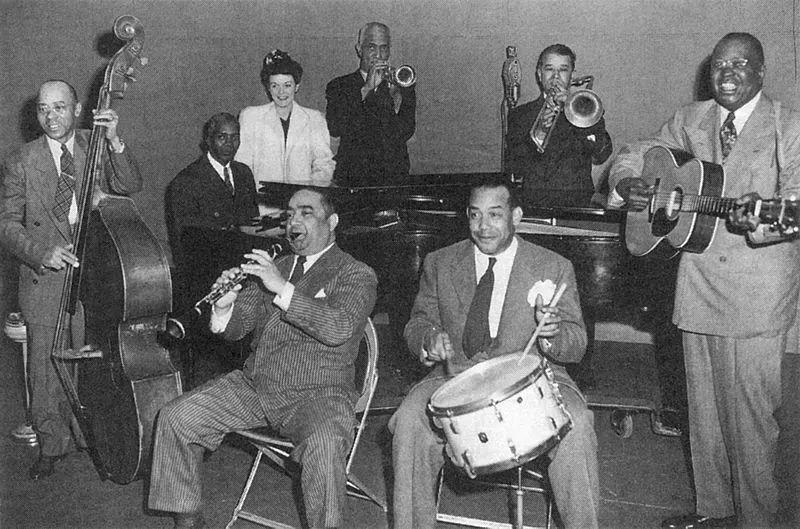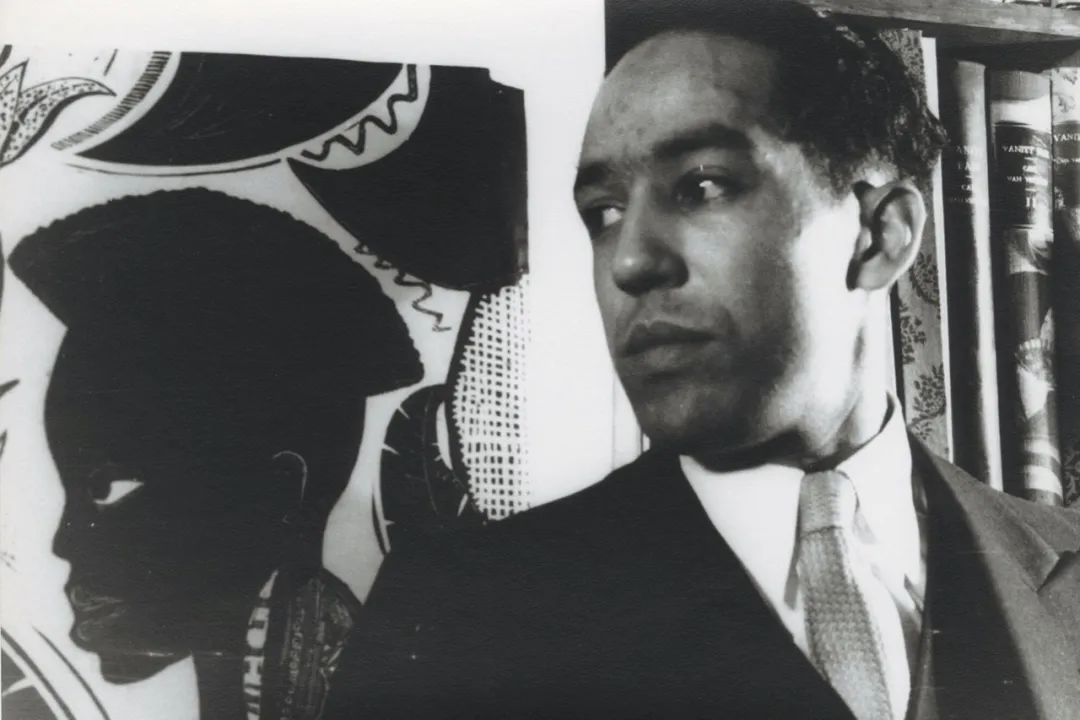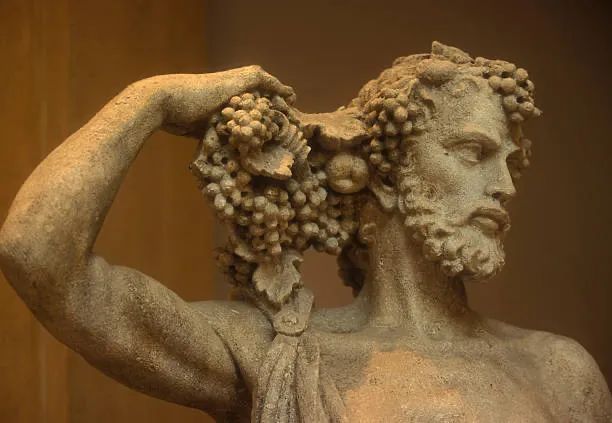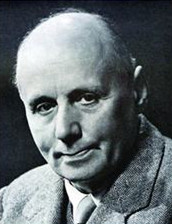One Page|Why is the Saxophone like a Silver Tree
Issue date:2022-11-16
1900 stands on the gangplank, gazing at the bustling downtown engulfed by the dusk’s luster. At the same time, in Harlem, a dozen miles from Manhattan Island, the jazz pubs perhaps were not due to open yet. The musicians are taking their sheeny instruments out of its cases, African American girls in flamboyant skirts are ambling on the dimly lit sidewalk. This is the roaring twenties. This is New York. Everything is streaming, gleaming, recklessly jostling, thunderously fleeing forward. Integration and separation, the opened and closed mind are contradictorily fused together. The civil rights movement was not due to begin for another thirty years, but the people of the tropics were already restless. They started to use the rhythm, the systole and diastole, embedded within their very blood to perform the lively, pulsing soul music, to cry the first note of freedom.
As an American, our interviewee Christopher thinks American culture was actually deeper influenced by Africa, as compared to Europe. African culture brought confidence and tenacity to American culture.
We here bring poet Langston Hughes’s poem “Jazzonia”. Christopher believes that African American people used Jazz and poetry to retrieve the sound of their culture. The prosperity of Jazz also epitomizes America during the 20s: African American people used Jazz to valiantly sing their hardships, praising their resoluteness; women took off their bras, and merrily swing danced. The twenties leaped triumphantly under these subjugations and liberations.

Langston Hughes
Jazzonia
Langston Hughes
Oh, silver tree!
Oh, shining rivers of the soul!
In a Harlem cabaret
Six long-headed jazzers play.
A dancing girl whose eyes are bold
Lifts high a dress of silken gold.
Oh, singing tree!
Oh, shining rivers of the soul!
Were Eve’s eyes
In the first garden
Just a bit too bold?
Was Cleopatra gorgeous
In a gown of gold?
Oh, shining tree!
Oh, silver rivers of the soul!
In a whirling cabaret
Six long-headed jazzers play.
01
Q: Hi Christopher, can you introduce yourself?
A: Okay! My name is Christopher. I was born in the United States, but I have lived outside of the States for around 15 years. Interestingly, my father’s family was originally from Eastern Europe. We could be Ukrainian or Russian, depending on who you ask. While on my mothers side there is a big mix of German, Dutch, and Irish. I have a diverse, multicultural background as do many Americans. As an American, I grew up in Princeton, New Jersey, which is a multiracial, multireligious, and polyglot immigration region.
My mother was a counselor, who worked at the Westminster Choir College. Both my parents were very fond of Classical Music, so I grew up listening to a lot of Classical Music. Both of my parents have a master’s degree, and there was always a focus on education and culture as important features of life.
I grew up reading literature, and I have a booklist of world literature, consisting mostly of European and partly global literature. In terms of the arts, I think I always looked more to Europe than to the United States. I’ve read the works of many authors, and I enjoyed plenty of them. One of my favorite authors is Fyodor Dostoevsky, who is Russian, and Friedrich Nietzsche, who is German. I tend to read complete artists rather than individual works, like certain English authors, some of which I liked during my youth like Sommerset Maugham and Thomas Hardy.
When I was younger, I tried to read a wide variety of classics and authors like Plato, Percy Shelly, and Tolstoy, but as I grew older, I liked really focused on particular authors such as Flaubert, Lawrence Durrell, Graham Greene, Borges, and Baudelaire more. I also had a deep love of Japanese literature when I was young, especially Kokoro by Soseki Natsume, and the collected works of Jun'ichirō Tanizaki Kawabata, and Yukio Mishima. I have read a broad scope of literature and authors, but am really more interested in environmental literature and “the spirit of place” as I grow older.
Q: Can you briefly introduce the poem you selected?
A: The poem I selected comes from American culture, which is Langston Hughes’s “Jazzonia”. This poem depicts a world of jazz, a universe of undulating tempos. My reason for choosing this poem is that Langston Hughes used this poem to represent a turning point in American culture.
Many people had always stereotype American culture as “western culture”, but the truth is, only a part of American culture is western, to trace its origins, American culture is actually deeply influenced by many cultures, especially the culture of the Sub-Saharan African diaspora. When you talk about the US culture, you must mention Africa, and you can’t underrate how deep the African culture influence is on the culture of the United States.
Coming back to the poem, Hughes is directly exemplifying how African-American culture is gradually liberating from hundreds of years of systematic and often brutal oppression. The poem comes at a moment in which African Americans are appearing in much more prominent role in American culture, and marking the watershed.
In the 1920s, the African-American culture thrived, showcasing their uniqueness. Like the poem pronounces, jazz attempts for the first time to unite the soul pursuit and art, it influences both the black and white community, and even the global community.

Christopher
02
Q: You mentioned that in this poem, the melody and rhythm symbolize the liberation from oppression, and you mentioned that you are also very fond of Nietzsche, through connecting the two points, do you think certain theories and ideas in Nietzsche’s The Birth of Tragedy can be associated with this symbolization?
A: There is no doubt that I am a big fan of The Birth of Tragedy… this might even be one of my favorite books. In the book, Nietzsche mentioned the dichotomy of the Apollonian and Dionysian, which is also reflected within this poem. This is a poem about the “Dionysian”, and this is what attracts me to it. This dynamic, chaotic, and clamorous art form, concentrated on singing and dancing, constantly shifting and transforming, are also the characteristics of Jazz.
Clearly, music and art have an eminently direct relationship, especially in English culture. English is a highly melodic, lyric language, it is easy to lyricize, and is equally simple to poeticize. English poems are exceptional at utilizing melody and rhythm, which was emphasized in this poem. The other aspect of Dionysian is how this poem rendered the dancing, feminine figure. Nietzsche, on the other hand, also alluded to music and dancing. This form of dancing serves as a genuine expression for aestheticism, whilst simultaneously portrays the intersection of art, intoxication, and spiritual ecstasy.

Dionysus
03
Q: Do you think there are anything unique regarding the culture of this poem?
A: Of course. The reason I chose this poem is because it doesn’t come from a new culture, but instead originates in the resurgence of one. It stems from a group of people, brutally abducted from West Africa, often by war. They didn’t have political, legal, or economic rights, they didn’t have human rights or social status, but they could use art to add meaning to their own lives. Where everything else was denied or was stripped away, music could still live. The lines and stanzas in the poem have nothing to do with political pronouncements, but instead demonstrate the power of culture.
The images in this poem, especially the girls dancing in golden ensemble, conjures the Kingdoms of Mali, Ghana, and Songhay, which were once the richest and some of the most culturally advanced regions on the planet. The richness in history and depth in culture granted the confidence for African Americans regarding their culture, as they gather in Harlem, New York.
Harlem at the time was a lively neighborhood, its residents were often middle class, and it was a central point for new businesses, for journalism, for art and performance. However, this was also a time of terrible brutality, when there were massacres, often of whole communities of African-Americans.
At the time, the worst violence and oppression, was in the Southern States, this problem for African Americans was apparent all around the United States, were anyone could be threatened by lynchings, even in the North and were not allowed to vote essentially any where. A black person could even be killed if he or she crosses eyes with a white woman, or didn’t lower his eyes on the street to a white child. Violence against black women was widespread.
This poem manifests this contrast, that despite the injustices, African-Americans people could still produce transcendent works of art, in music and verse, in dance, expressing their cultural vigor. It’s the same with Jazz, this form of music does not have a distinct theme… at most, a motive, but it could expand to create thousands of possibilities.
Q: Do you think this piece of poetry epitomizes the Harlem Renaissance?
A: Certainly. Although I am not an expert in this field, I do believe so. Because this poem doesn’t only represent this important point in black American culture, but is also progressively forming an economic, political symbol. Only 30 years later, the civil rights movement began, and the faith African American’s had in their culture undoubtedly buttresses the entire movement.
This poem is a splendid embodiment of the Harlem Renaissance, because it’s not melancholy, but instead, despite all of the reasons for pain, it is surging with joy. Even though Hughes is only several generations away from slavery, where even the ability to read or write was forbidden, he nonetheless could still compose powerful and unique poems, and be one of those who helped drive forward American culture.
Q: We would like to ask you at last: What do you think is the purpose of poetry?
A: I think there are many ways to approach this question. One of them is how poetry allows both the poet and the reader to “put on a different mask”. Poetry provides multiple perspectives for me to probe the world… for instance, we could use this poem to immerse and place ourselves within the atmosphere and scenery of the Harlem Jazz Club, but also into the deeper more essential “silver rivers of soul”. Poetry modified the mode we experience the world, even allowing melodic and rhythmic perceptions.
The difference between poetry and other literary forms lies within the former’s ability to condense experience, then to convey it in a highly abstract form. If you read a thousand-paged novel, you might appreciate the extent of this experience, and to be able to immerse deeply within a story, yet poetry brings the swift, intense escapade.










